
设计单位 Peris+Toral Arquitectes
项目地点 西班牙巴塞罗那
建成时间 2021年
建筑面积 10,000平方米
2017年,总部位于巴塞罗那的建筑事务所Peris+Toral Arquitectes赢得了由AMB组织、公共机构IMPSOL推动的竞赛,该项目旨在于Cornellà de Llobregat镇著名的Pisa电影院原址上,建设85个社会住房单元。
In 2017, Barcelona-based Peris+Toral Arquitectes won the ideas competition organized by AMB and promoted by the public body IMPSOL to design a project for 85 social housing units on the site formerly occupied by the iconic Pisa cinema in the Barcelona municipality of Cornellà de Llobregat.
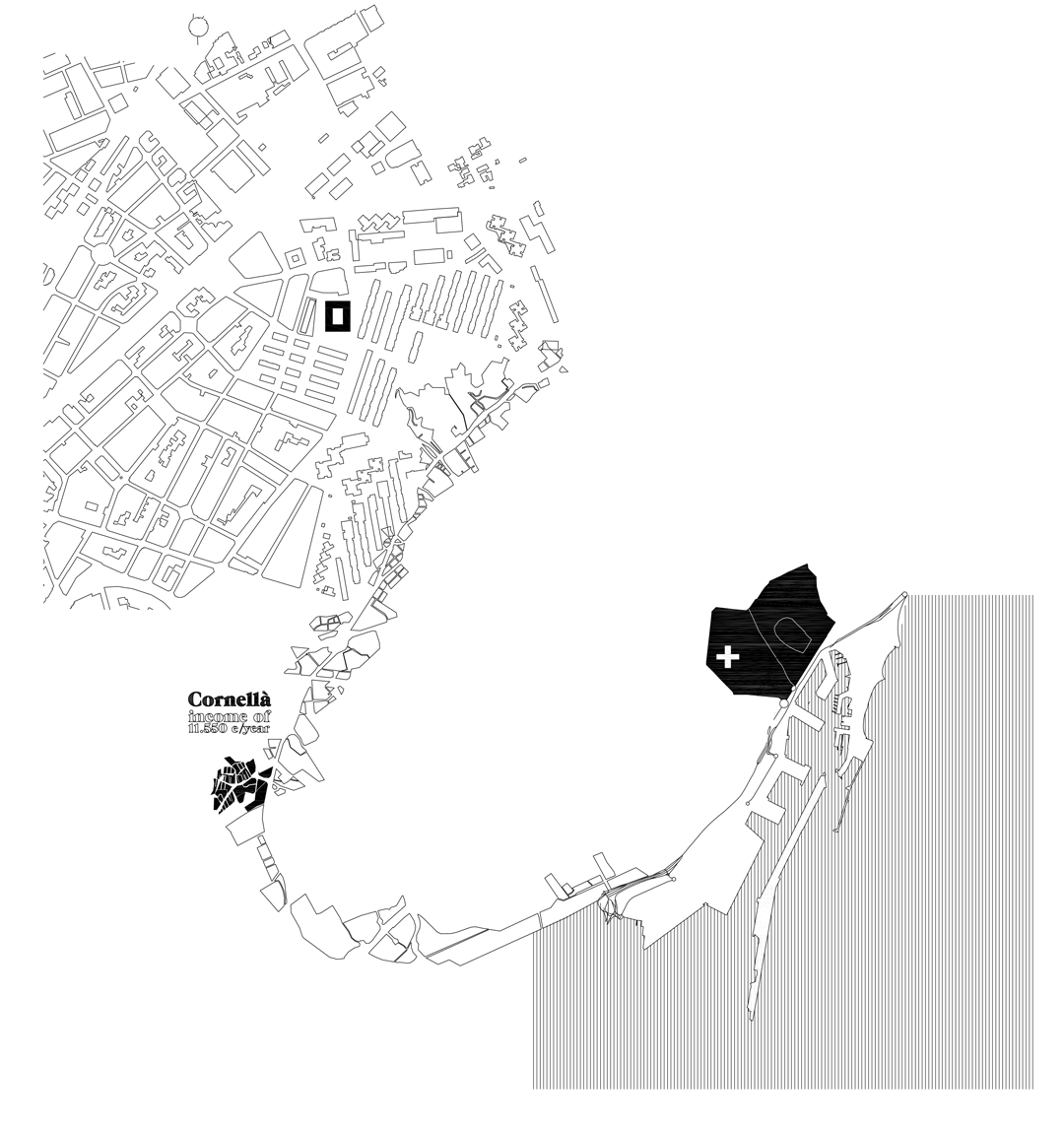
项目最终呈现的是一栋独立住宅楼,建筑面积为10,000平方米,建筑底层为钢筋混凝土结构,容纳着商店和公共设施,而上面五层则是木结构的住宅。
It is a freestanding residential building of 10,000 m2 floor area comprising five wood-framed floors supported by a reinforced concrete structure on the ground floor to accommodate shops and public facilities.

首先,在设计这座多户住宅建筑时,团队的关键策略是,消除户内及公共的走廊,代之以“连通室”,提高平面的利用率。其次,设计将木材作为主要的建筑材料。该项目的负责人、事务所联合创始人José Manuel Toral对此解释道:“我们选择使用木材的原因,一是它能以工业化的方式实现建筑结构,提高施工质量和缩短施工时间,二是它作为完全可再生的材料,可以积极减少碳排放。”
As the key points in their design strategy for this multifamily construction, Peris+Toral Arquitectes decided firstly to create a layout of spaces which, by eliminating both private and communal passages and proposing communicating rooms, makes the most of the floor plan, and, secondly, to make wood the primary construction material. "We chose to work with wood due to the possibilities it offers for industrializing the structure of the building and improving both the quality of construction and the time it takes, and the positive reduction of emissions you get with a totally sustainable material", explains José Manuel Toral, architect and co-founder with Marta Peris of Peris-Toral Arquitectes, and the architect responsible for the project.
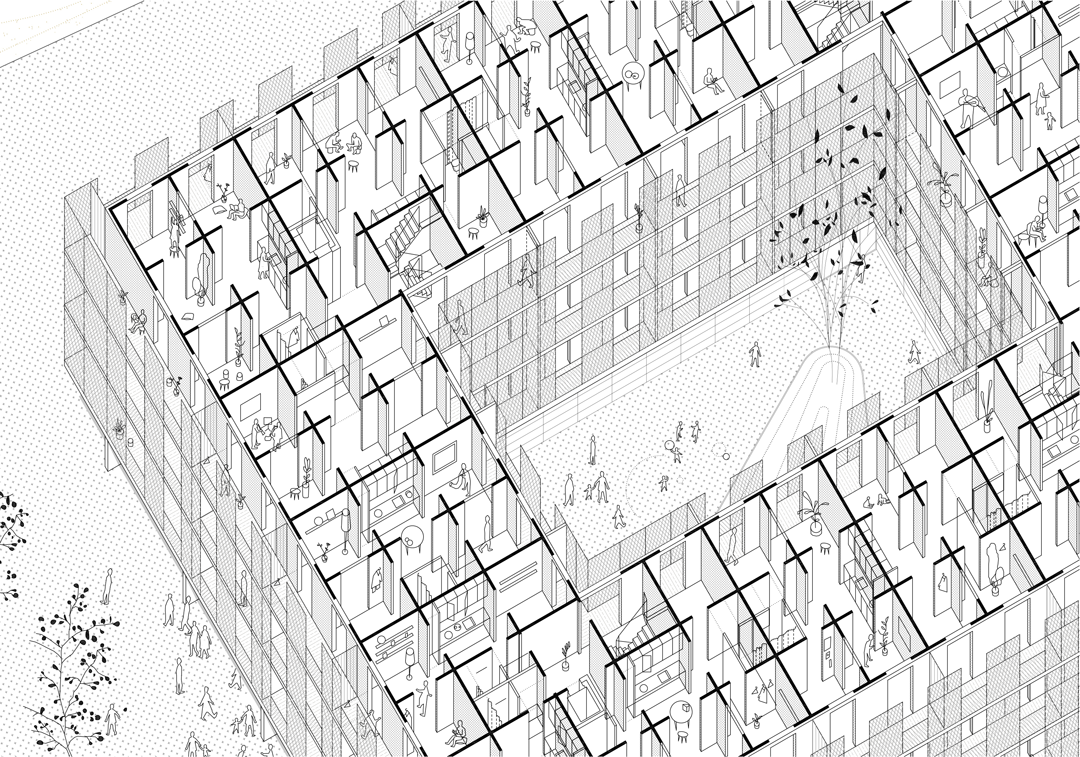
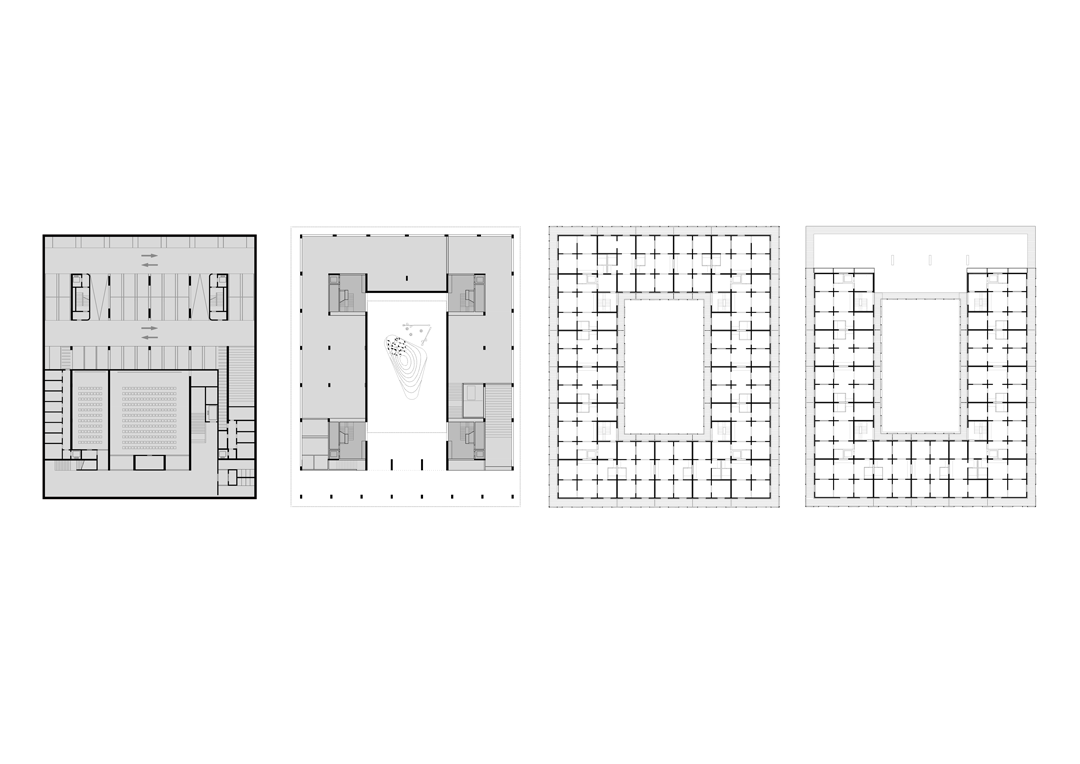
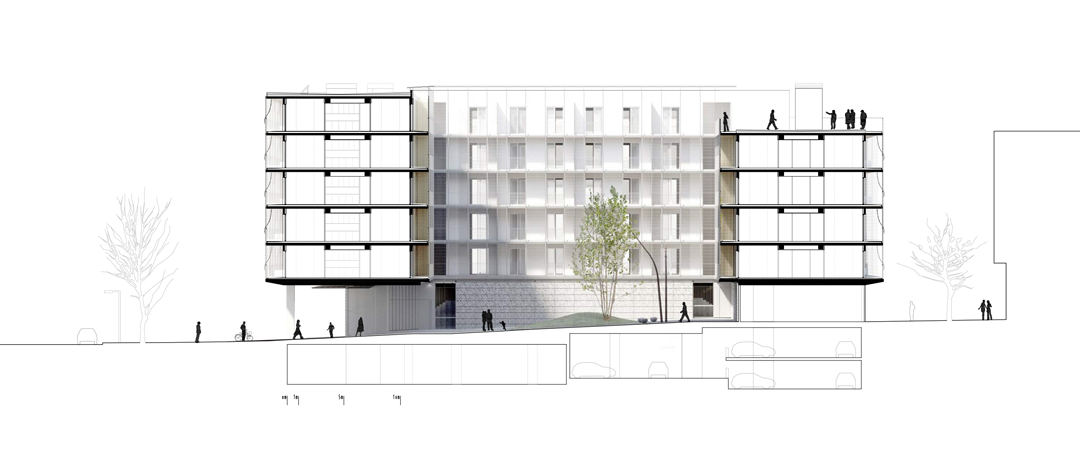
该建筑围绕一个庭院组织,庭院连接着一系列衔接空间。建筑底层的入口门廊向城市开放,并作为城市公共空间与社区公共庭院之间的过渡。4个竖向交通核位于庭院的4个角落,不能直接从外部立面进入走廊,因此庭院广场成为所有的居民必经的空间。在居住层,住宅的入口设置于围绕并俯瞰着庭院的内环空间,入口空间同时也作为私人露台使用。
The building is organized around a courtyard that links a sequence of intermediate spaces. On the ground floor, a portico open to the city anticipates the doorway of the building and filters the relationship between public space and the communal courtyard that acts as a small plaza for the community. Instead of entering each of the building’s hallways directly and independently from the outer façade, the four communication shafts are located in the four corners of the courtyard, so that all the inhabitants come together and meet in the courtyardplaza. On the typical floor, access to the dwellings is via the private terraces that make up the ring of outdoor spaces overlooking the courtyard.



建筑物总体的平面布局是通过组织各个“连通室”来安排的。设计以矩阵形式将每层平面划分成114个均质的13平方米小房间,大楼内这样的空间共有543个,这样的设计消除了公共及套内的走廊,提高了平面使用率。服务空间布置在内环,而其余房间随之延伸,不预先设定用途,依住户喜好呈现出不同的户型可能性。
The building’s general floor plan is organized by means of a layout of communicating rooms. There are 114 spaces per floor, 543 in the building, of similar dimensions, that eliminate private and communal passageways to make full use of the surface area. The server spaces are arranged in the central ring while the rest of the rooms, of undifferentiated uses and size, approximate 13 m2, run along the façade, presenting themselves to different forms of occupation.
矩阵外围沿着外立面同样有露台,完整了空间序列,露台通过大开口连接到房间,为住宅提供了新鲜空气、景色和套内交通路径。
Another terrace in the outer ring completes the spatial sequence, the row of spaces interconnected by large openings, permeable to air, sight and movement.

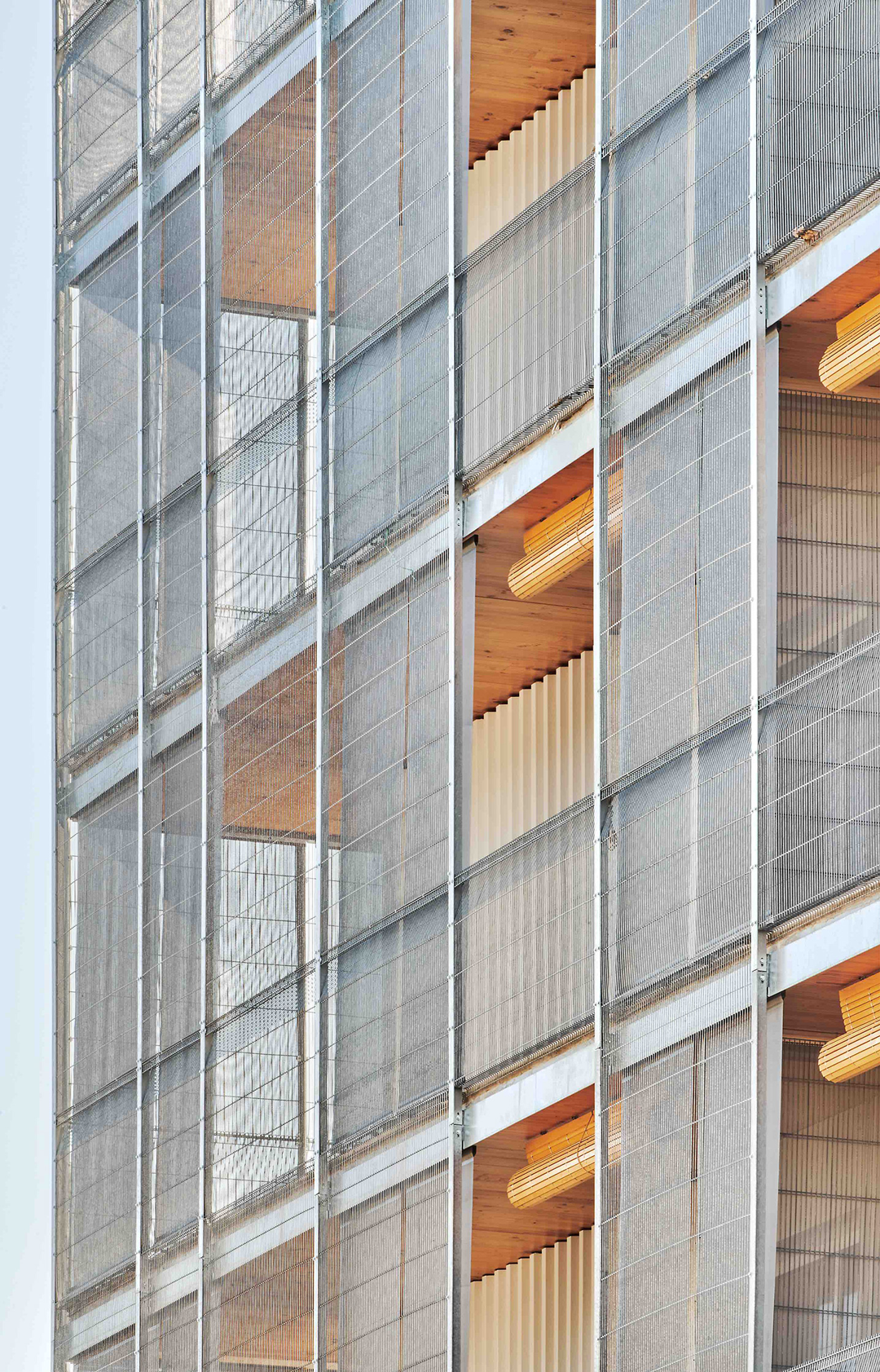
典型楼层中,每层分布有18套住宅,分为4组,各对应一个交通核心,每个核心周围有4—5套房子,这样一来,所有住宅都享有交叉通风和两个朝向。
The 85 dwellings are distributed in four groupings, with a total of 18 units per floor. Four or five homes are laid out around each nucleus, so that all typologies have cross ventilation and dual orientation.
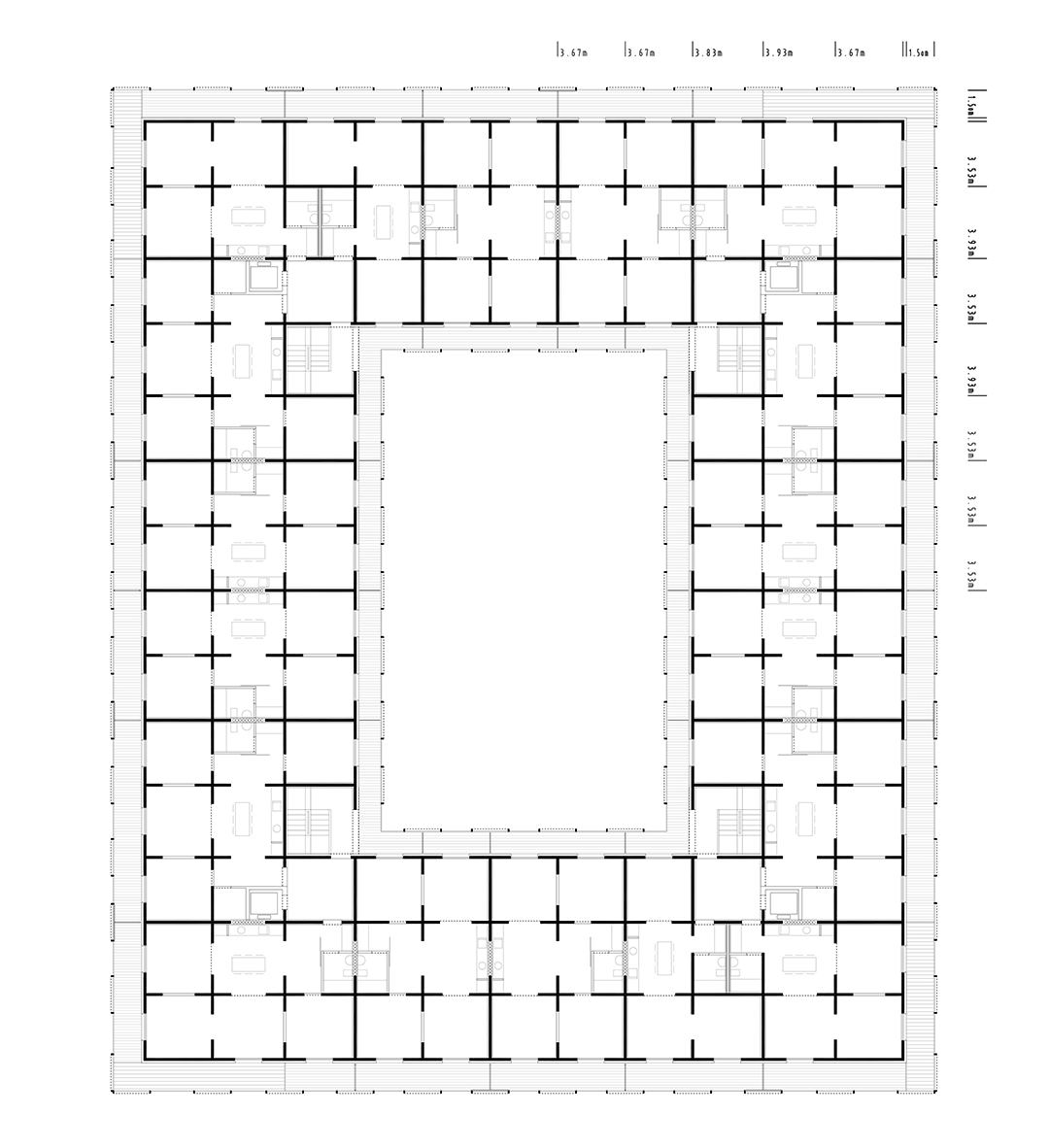
这些住宅由5到6个模块组成,取决于它们是有2间还是3间卧室。包容性的开放式厨房位于中央房间,替代走廊分流,同时使家务工作可见,避免家务与性别绑定。
The homes consist of five or six modules, depending on whether they have two or three bedrooms. The inclusive, open-plan kitchen is located in the central room, acting as a distributor that replaces passages, while making domestic work visible and avoiding fixed gender roles.
设计将房间面积定为13平方米左右,其模糊、不确定的功能和使用方式增进了布局灵活性,而且在结构层面,这个大小也是木结构对应的适宜尺度。考虑到这是一个社会住房项目,团队为了确保经济性,将木材使用量优化到了每平方米建筑面积消耗0.24立方米木材。
The size of the rooms, in addition to offering flexibility based on ambiguity of use and functional indeterminacy, allows an optimal structural space for the wooden structure. As this is social housing, to ensure economic viability the volume of wood required has been optimized to 0.24 m3 per square metre of built area.
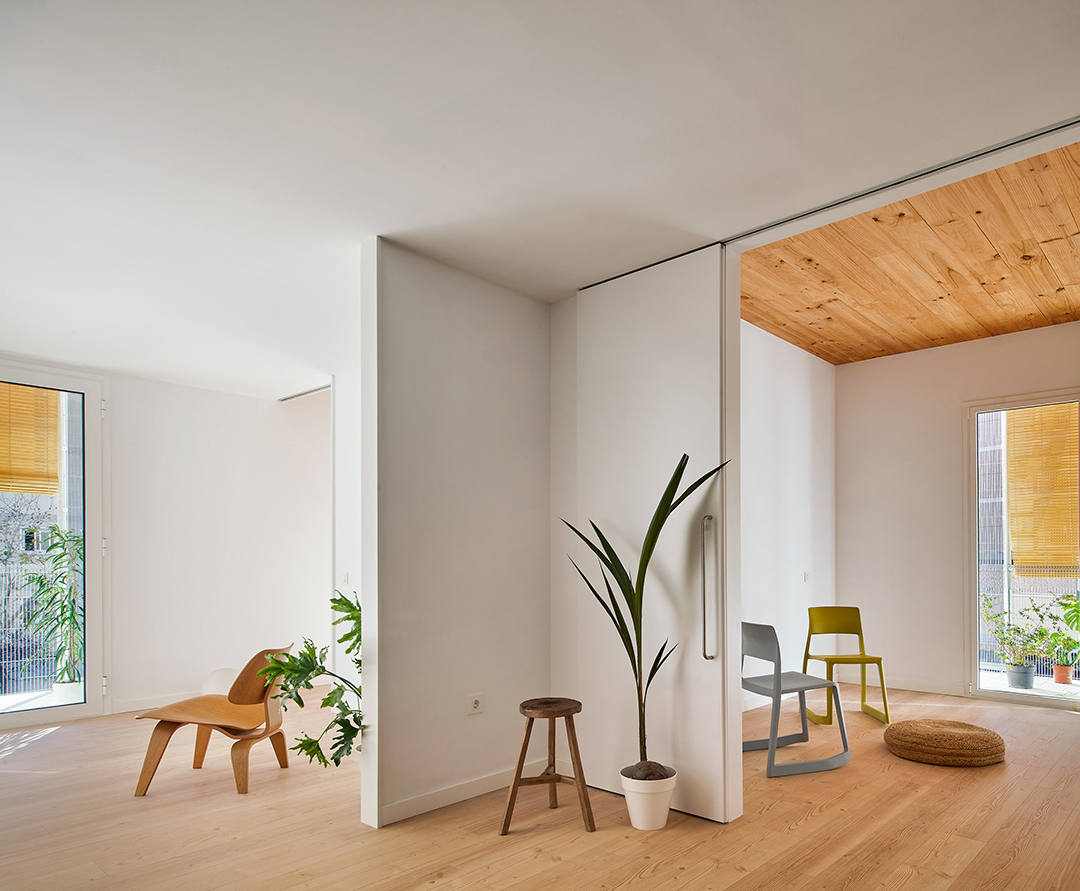
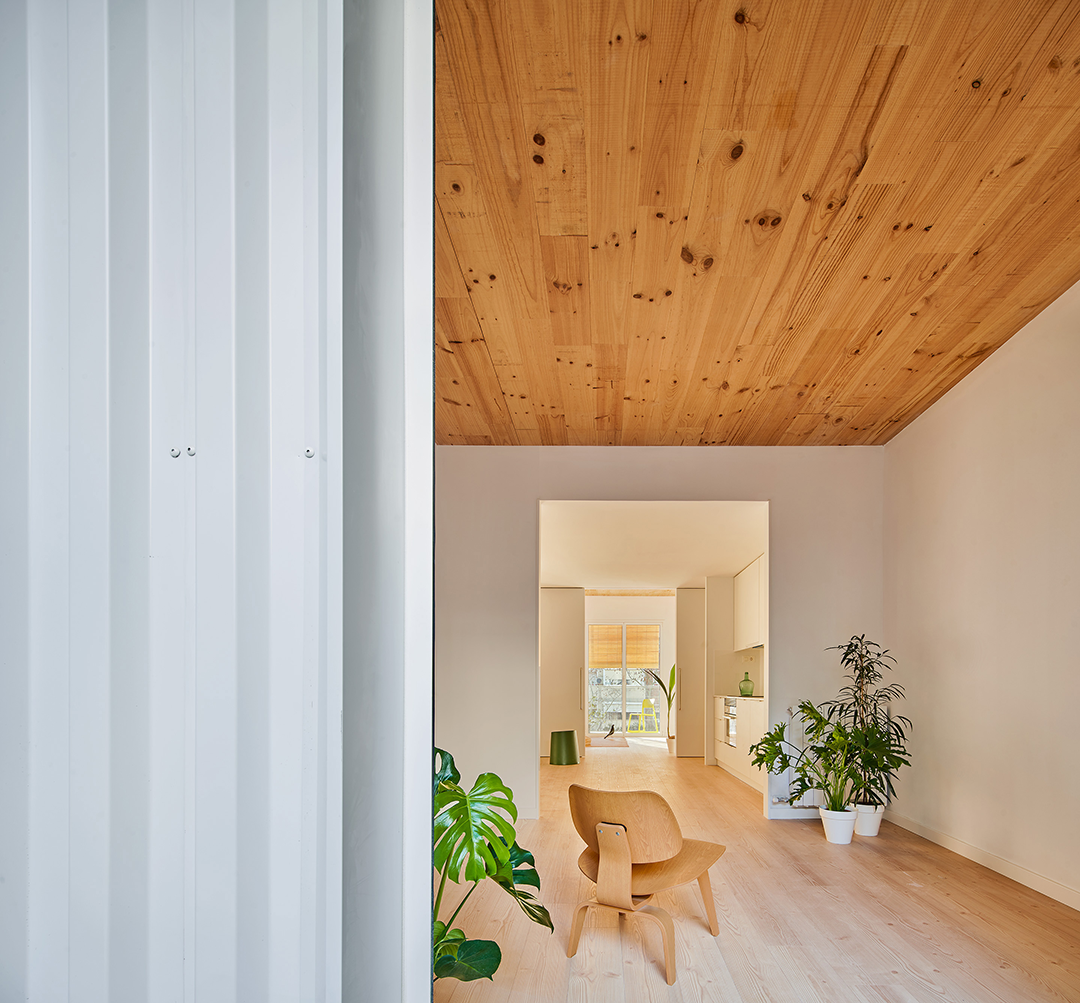


完整项目信息
Surface: 12,815.55 m2
Budget: 860 €/m2
Client: IMPSOL, lnstituto; Metropolitano de Promoción de Suelo
Authors: Marta Peris, José Manuel Toral
Team: Guillem Pascual, Ana Espinosa, Maria Megias, Izaskun González, Miguel Bernat, Cristina Porta
Consultants
Structures: Bernúz Fernández
Fluids: L3J Tècnics Associats
Works Management: Joan March i Raurell
Environmental advising: Societat Orgànica
Acoustics: Àurea Acústica
Landscape: AB Pasatgistes
Photography: José Hevia
本文由Peris+Toral Arquitectes授权有方发布。欢迎转发,禁止以有方编辑版本转载。
176****6267
2年前
回复